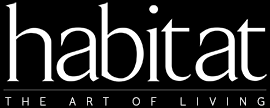In virtually no time at all, public perception on hygiene has changed around the world. Now more than ever before, consumers are aware of the surfaces they touch and whether these surfaces are putting their health at risk. This is particularly the case in high-contact areas such as bathrooms and kitchens, both in public spaces like offices, restaurants and transport hubs, and in private homes. We are living in a hygiene-first world, and architects and installers have to meet these demands with intelligent solutions. They have to be equipped with both the products and knowledge that consumers need in order to make their environments safe, clean and easy to use. Those who don’t make the pivot to a health-based approach will fall behind; those who do will guarantee their ongoing relevance and success.
The rise of touch free technology
The earliest and still the most important piece of advice shared by the World Health Organization on curbing the spread of Covid-19 was:: wash your hands. Hands are one of the most common means of transmitting germs and infections, and keeping them as clean as possible is a critical risk-reduction measure. This step goes hand-in-hand with maintaining hygienic surfaces. In order to be effective, keeping hands and surfaces clean needs to be simple and seamless. And one of the best ways of ensuring this is through touch free technology.
Leading global provider of bathroom solutions and kitchen fittings, GROHE, is mapping out how improved architecture and design can help tackle current hygiene challenges. For years, it has been developing infrared solutions that allow for the hygienic and precise control of water. Its Essence E and Eurosmart Cosmopolitan E bathroom taps turn on and off automatically, and their optimised internal waterways don’t allow water to stagnate. A controlled mixing ratio of hot and cold water also minimises the risk of microbial contamination.
These advances are especially valuable in public spaces, where consumers are wary of interacting with any surface that might have been touched by another. And in the kitchen, GROHE’s range of taps allow water flow to be activated via the forearm, elbow, wrist or foot. These intuitive and convenient solutions limit the spread of germs and the chance of cross-contamination. Of course, limiting, or even eliminating, the need to touch toilets is equally critical. Even in private bathrooms, contactless hygiene is now paramount.
The infrared electronics used in GROHE’s taps are also available in its large toilet range to offer contactless flushing and other conveniences. GROHE’s Sensia Arena shower toilet, for example, flushes the moment he user steps away, and also incorporates a sensor for the lid so that this doesn’t need to be touched either. Special hygienic coatings help to reduce the build-up of bacteria by 99.9% and self-cleaning antibacterial spray arms offer further peace of mind. GROHE‘s Manual Bidet Seat is another impressive hygienic product that offers a better and fresher clean. Its common U-shaped seat and lid mean that it matches seamlessly with many leading toilet brands, and doesn’t require any electricity. It’s powered by water pressure instead, which can be controlled through the seat’s side lever. The result is effective and gentle and can be customised to personal needs.
All of the toilets in the four GROHE Ceramics range are rimless, which means that bacteria can no longer settle in angles and corners under the rim. And the Euro range features GROHE’s powerful Triple Vortex flush, which thoroughly cleans the entire ceramic surface.
Hygiene-focused professionals will set themselves apart
The impact of Covid-19 is going to be felt for a long time to come. The world has changed and the need to create health-focused architecture and interior design has changed as well – probably permanently. There is no doubt that the users of workplaces and public spaces, as well as the residents of private homes, are going to prioritise hygiene going forward. This hygiene-critical approach brings new challenges for architects and requires specialist knowledge from installers. For professionals, adapting to client requirements in good time, and adapting portfolios to incorporate hygienic, sensor-controlled innovations is essential. Doing so is both an ethical responsibility and a business imperative.
Werner Beukes, Chief Marketing and Sales Officer at LIXIL Africa. LIXIL Africa’s brands include Cobra, Vaal Sanitaryware, GROHE and Apex Valves.




